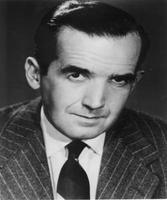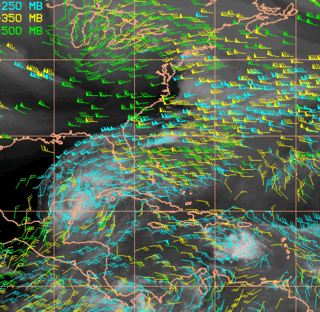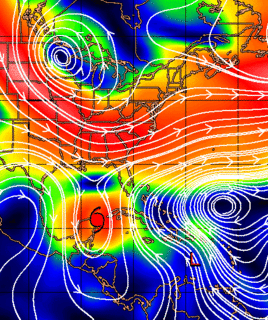Southwest Florida is in a dissociative state today, in anticipation of "
Wilma." The scene looks entirely normal, except for the caravans of cars moving north from the mandatory evacuation areas. People are out walking their dogs, swabbing down their boats, listening to the utterly superfluous random Jimmy Buffet tune. A few businesses are boarded up, but otherwise, you'd never suspect. Kids play stickball in the streets like aides in the White House, where no one speaks of Rove. All is calm, but a little tense, a practiced calm, perhaps a kind of wisdom, you go about your business, head down, all the while your sphincter is singing along with
Banjo,
didja ever get the feelin' that you wanted to go,
then you got the feeling that you wanted to stay
Spent a couple of hours putting potentially hurlable outdoor objects out of the way, then attended, along with a whole lot of other people, a showing of
Good Night, Good Luck.

In our pettifogging era of "bloggers vs. journalists," it has escaped us, what Murrow says at the very opening of the film (to faces who came to praise and bury him) about television used instrumentally "to distract, delude, amuse and insulate us." He is not saying that we need to be better journalists. He is saying that an intricate web of networks, news gatherers, corporate profiteers and advertisers had put the relevance of journalism in question, and television, barely born, had already become a means of subtracting, diverting and deflecting public attention from what could be called, with deadpan absurdity, the Real.
This is different from saying journalists do not have integrity. Or that corporations have allegiance only to capital. Or that the public doesn't care about truth. It's delineating a convergence of money, power, and infantilism clamped in a construct built to withstand hurricane forces. Speak all the truth to power you want: you're competing with Steve Allen, ER, Law and Order, Seinfeld, 24 Hours, The Honeymooners. You cannot escape the syntagm of the medium that relegates news to the status of a rude syncope in the viewer's breastfeeding. TIVO, Comcast, CNN: It's All Suck, All the Time.
The flickering witness of the film is to not try to state this in so many words, other than via
Murrow's famous speech. Instead, it makes an filmic allegory of television by offering us a vision of human faces, an anatomy of old, squat, dumb, feckless, neutral, indefinable, normal, indefinably uninteresting visages - a semiotician's dream of the now-only-other of television (and movie) faces. It opens with these faces, before you even know the film is there, it broods, lingers on face after face, 50's faces, poorly lit, blotchy, strangely unlike the faces the camera - any camera known to us - is supposed to be worshipping. Faces of the uncool, parents, teachers, functionaries who are now mostly dead. The hopelessly rebarbative generation in dull wardrobes before things got interesting, before color, before Kerouac, before Bobby Darin, before.
Before we get to what went wrong, where, how, why, with television, we get to see what people looked like before television made them look like Liberaces who, having flunked piano, turned to making a living and chattering. (
Liberace makes a brief, telling return from the grave as an impotent emblem of the other of Murrow.)
What
Good Night, Good Luck aspires to do is big. It's after nothing nostalgic; if anything it's looking for something radically contemplative, monklike: It is saying that we need to do something other than "report" what Power says, like some mindless drooling court recorder. It is that we need to dissociate from the aesthetic and the economic in all their multifarious impingencies. TV didn't just make la vie en rose: it quashed intellect. Literacy, Liberace, same thing.
Good Night asserts the part about needing to listen to what Power is saying and doing -- mulling it, giving it the full weight of what it is about. And then deciding, Bill Keller and Pinch Sulzberger take note, whether what is being proposed meets the daily minimum requirement of integrity, intelligence, and honor stipulated by the ideals muttered in the Constitution among other places.

But these assertions occur in the flesh. The faces, the recorded presence of Joe McCarthy, looking half-mad, bullet-crevice between his eyes, slurring his slander for all to hear, matter less than the way
Good Night, Good Luck does not look like television, or if it does, it looks like television before it became TV, when it had no models other than those of film or stage.
Meanwhile, we are entranced by the
rorschach blots of Wilma. Quite colorful.
So much information, and

nary a fucking clue.
Thanks for your thoughts of us. We plan to manage something along the lines, if one can hazard such an allusion in the wake of that of
WonderChicken resurgent, of the Greek:
after he returned to Ithaca, that he must take a well-made oar and walk inland with it until someone asked him why he carried a winnowing-fan on his back. At that place, he was to make a sacrifice to Poseidon. He also told Odysseus that after all that was done, that he would die an old man, "full of years and peace of mind"...






